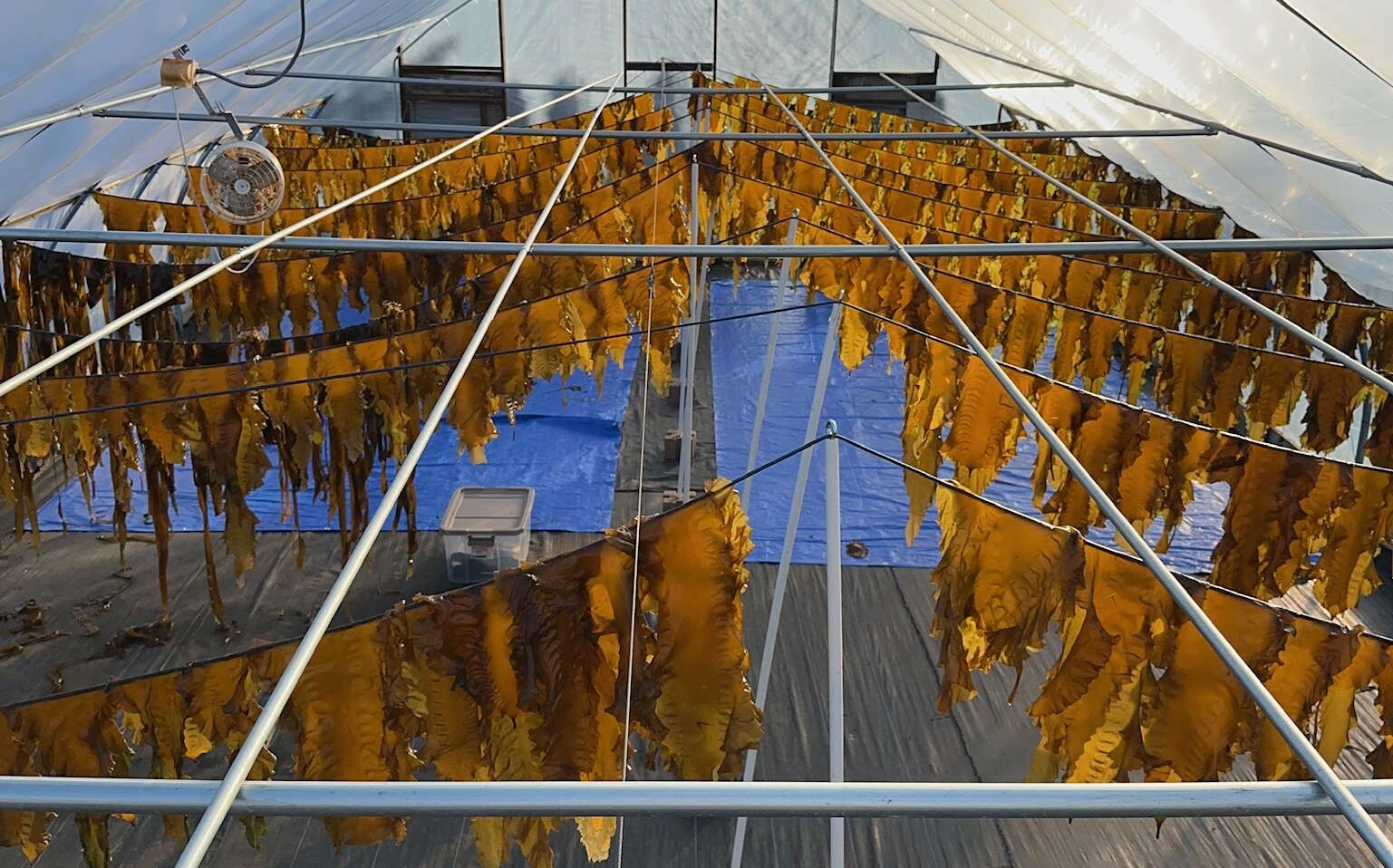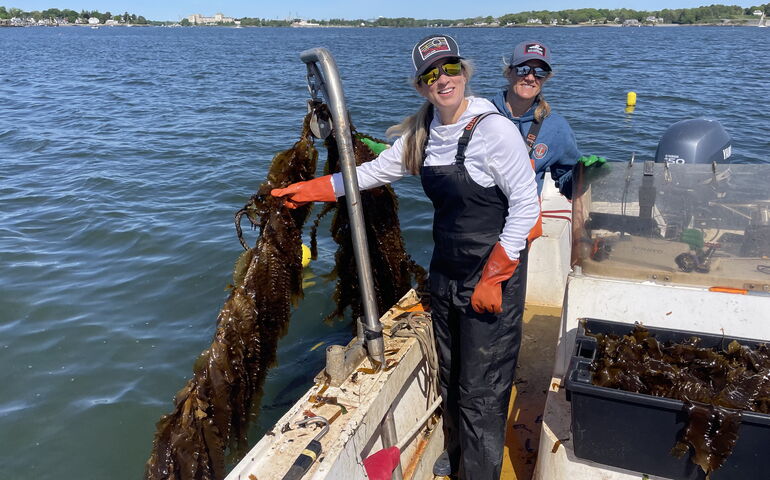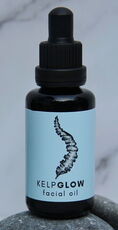
Kittery startup awarded producer grant to develop skin care products using kelp
 Photo / Courtesy, Cold Current Kelp
Krista Rosen, left, and Inga Potter started Cold Current Kelp to grow sugar kelp and extract beneficial bioactive compounds for skin care.
Photo / Courtesy, Cold Current Kelp
Krista Rosen, left, and Inga Potter started Cold Current Kelp to grow sugar kelp and extract beneficial bioactive compounds for skin care.
Cold Current Kelp, a Kittery startup that has developed skin care products from farmed kelp extract, was awarded a $24,700 planning grant, that it will match with $25,000, to develop business and marketing plans and explore ways to efficiently increase production.
The value-added producer grant comes from the U.S. Department of Agriculture.
“It will be a huge benefit for us to be able to rely on other Maine-based professionals to help develop our marketing and business plans,” said Krista Rosen, Cold Current’s co-founder. “It sets us up for bringing our company to the next level. Eventually, we plan to seek investment, and being able to show we have thought about these long-term plans is beneficial.”
The company grows, harvests, processes and produces value-added products from kelp raised offshore in Kittery. Kelp is a nutrient-dense and environmentally friendly aquaculture product that has grown increasingly popular in recent years. It is primarily known as a specialty food and dietary supplement.
Cold Current instead uses its farmed kelp to create skincare products. Rosen and Inga Potter founded the company in 2021 and manage most aspects of growing and processing the seaweed themselves.

“Maine’s long history of innovation on the sea is not a thing of the past,” said Rhiannon Hampson, USDA Rural Development’s Maine state director. “Companies like Cold Current Kelp demonstrate the potential for the Gulf of Maine to provide us with new, sustainable economic opportunities.”
Blue economy
Rosen has a background in securities litigation, in New York City and Maine, and served on the board of Laudholm Trust, supporting the Wells National Estuarine Research Reserve for six years. That led to her interest in ocean farming and the blue economy.
Potter is a marine biologist and educator who earned a Ph.D. from the University of New Hampshire in 2010 studying the ecology of large oceanic fish. Potter said that she has collaborated with scientists all over the world in her research, and that her environmental science background drew her to the potential of kelp farming.
They work with Bob Leipold, Rosen’s uncle and a chemical engineer with professional experience in the chemical industry, biotechnology and pharmaceutical consulting.
They have said that they view kelp as a sustainable crop that improves ocean health by naturally purifying the water, and an environmentally friendly source of plant-based bioactive compounds used in skin care.
While studying potential uses of the seaweed, they experimented with making a skin care product using a “nontoxic green chemistry” method to extract what they have said are beneficial compounds in the kelp. The extract is blended with organic oils.
They have two 400-square-foot farms permitted by the Maine Department of Marine Resources.
Partnerships
Partnerships and funding opportunities are helping the company grow, including the Rockland nonprofit Island Institute and the Maine Technology Institute in Portland.
The company previously received a National Oceanic and Atmospheric Administration Saltonstall-Kennedy grant for farming red seaweeds, then secured a $175,000 research and development grant through the USDA’s Small Business Innovation Research program to develop improvements to its extraction process.
The company earlier this year moved into a 1,059-square-foot lease at 37 Route 236 to begin manufacturing.
The latest funding is expected to help develop solid business and marketing plans, work with the Maine Manufacturing Extension Partnership on a manufacturing planning and feasibility study, and perhaps eventually add to their product line.

The product is sold direct-to-consumers through the company’s website and it’s in about 20 stores, mostly in New England.
"Cold Current Kelp is a great example of how Maine aquaculture entrepreneurs are adding value to the wonderful products we grow in Maine's pristine environment,” said Sebastian Belle, executive director of the Maine Aquaculture Association. “The development of innovative value-added products is critical to the continued growth of the aquaculture sector, and USDA Rural Development programs are vital to those efforts."
USDA’s value-added producer grant program helps agricultural producers expand their businesses and increase their incomes by developing new products and reaching wider markets. Farmers, producer groups, farmer-cooperatives and others are eligible.













0 Comments